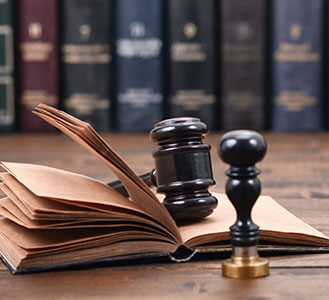Look around, are you in a safe location?
- Are you blocking the traffic?
- Are you in an area where you can be hit again?
When to Move Your Vehicle
- The Texas Department of Transportation recommends that if you are in a collision and no one was injured, don’t wait for the police before moving your vehicle. If the car can be driven safely, Texas law requires you to move it out of the flow of traffic.
- If there is damage to the vehicle, stop and exchange names, addresses, phone numbers, vehicle identification numbers, vehicle license plate numbers, insurance information and driver’s license information with the other driver. If you hit an unattended vehicle (a parked car), find the driver or write your name and address on a note explaining what happened – write down the license plate and take photos (was the vehicle properly parked?). You must also include the owner’s name and address if the vehicle you are driving doesn’t belong to you.
- Note the location of the crash and get the names, addresses and phone numbers of any witnesses. If the vehicles cannot be moved, protect the scene by setting up flares or raising your hood.
While most insurance companies cringe when the police report indicates that the vehicles were moved, it is your safety that should come first.
Call 911 – Call the police
- Call 911 and report your accident;
- Give the 911 operator your name, provide the year, make and model of vehicles involved;
- If you have reason to believe that the person who hit you was under the influence of alcohol or drugs, assure that you advise the investigating officer of same;
- If you believe the other driver was distracted, texting, or on the phone, be sure to let the investigating officer of those facts
- If you believe you sustained any type of injury request an ambulance to assure that you are evaluated by a paramedic (sometimes the shock of the accident will raise your adrenaline and despite being injured, you do not feel any immediate pain);
- If you are transported to the emergency room, assure that you make contact with the investigating police officer to assure that your version of the accident is included in his police report;
- If any person or person(s) come to your assistance and state that they witnessed the accident, make sure you get that person’s name, address, email address, and telephone number. (This may be the most important thing to remember.); and
- If you can have a friend or family member take pictures of the scene of the accident, debris from the accident, skid marks and the property damage of all the vehicles involved.
Your Police Report should be made available to you within a few days after the accident. If the report is incorrect for some reason, a request to amend the police report can be made to the investigating officer.
18- Wheeler, Semi – Truck, Commercial Vehicle or a Company Owned Vehicle
Were you involved in an accident with an 18-Wheeler or a company-owned vehicle? These accidents are handled differently because various investigative steps must be done immediately in order to make sure that evidence is secured and not deleted, tampered or modified.
LISTEN to any conversation being held between the driver and the investigating officer. The information that is disclosed to the police officer is extremely important.
Listen to see if any of the following admissions were made:
- Did he/she mention anything about being tired?
- Did he/she mention anything about running late?
- Did the police officer mention anything about he/she being under the influence of alcohol of any drug?
- Was the at-fault party issued a citation (ticket)?
- Was the at-fault party arrested?
- Did he/she tell the police officer that he/she was at fault?
- Did he/she tell you that he/she was at fault?
- Did he/she have drugs in his/her possession?
18-wheeler accidents
- Make sure that you take pictures of the doors of the 18-Wheeler. They have the US DOT number that will help locate the owners of the 18-Wheeler;
- Make sure that you take pictures of the trailer being towed. The trailer is not always owned by the same company as the truck pulling it. Your lawyer will need to also obtain the US DOT number on the trailer to locate the owner. Often, trailers are leased by different companies or the truck is being contracted to haul the trailer from one location to the next.
Company Owned Vehicles / Commercial Vehicles
- Did the vehicle contain a business logo?
- Was the driver the owner of the business or an employee?
- Was the vehicle being driven with permission and/or explicit consent of the company owner?
- Was the car being driven for business purposes?
Post-accident
Call your lawyer after you call 911. Remember that the insurance representatives (adjusters) are not in the business to pay out claims and will attempt to get information from you that could hurt your claim.
- Call your insurance company and report the accident. (It is best that you do NOT give a recorded statement until you talk to an Attorney.);
- If you are not at fault the insurance company for the at-fault driver will also contact you and will request a recorded statement. Again, it is best that you do NOT give a recorded statement until you retain an attorney.
- Do NOT cash any checks that are sent to you by the insurance company before talking to your lawyer. Insurance companies have been known to send premature / nuisance check without knowing the significance of your injuries, a sort of settle quickly and move on so you don’t have time to fully figure out how your body is reacting to the trauma of the crash. Remember that sometimes the cashing of a check that says “full and final settlement” can mean that you will be accepting the check as a full and final settlement of your claim for any and all damages and expenses and will have no further recourse aka no right to sue, no lawsuit.
Texas law requires drivers to have basic liability coverage. If you don’t have auto insurance, you can be fined up to $350 (or more if you’ve been ticketed before for no insurance). Be ready to show your insurance card if an officer asks you for it, and inform your insurance company of a collision right away. https://www.txdot.gov/driver/laws/collisions.html
For More Information on Types of Auto Insurance Coverage.
If you or a loved one have been injured in a car wreck with a truck or commercial vehicle call Caquias Law Group, PLLC today for a free no-obligation consultation.

 (210) 996-2237
(210) 996-2237





